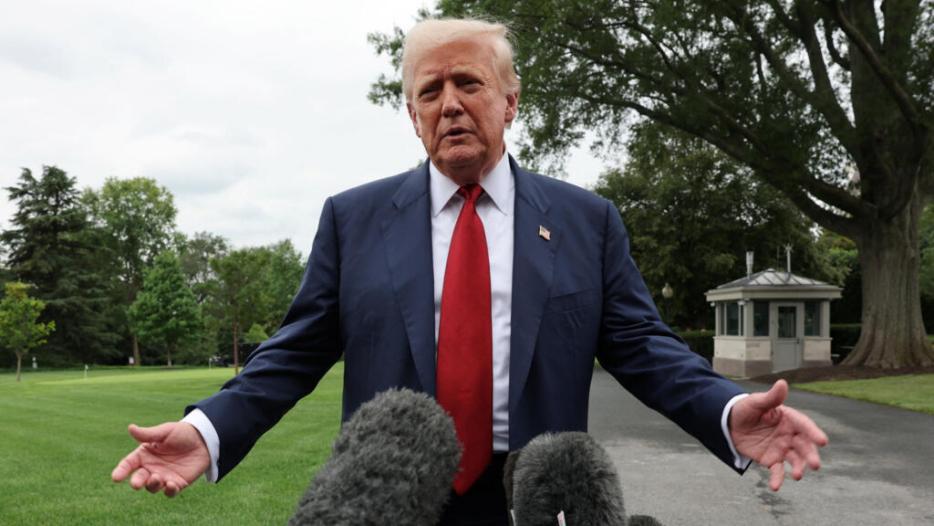
In recent years, the scientific community in the United States has been facing growing concerns that the Trump administration may cut funding support for basic science, which could affect the country's global scientific status. However, the 2026 budget report released in May 2025 reveals a deeper issue: the Trump administration's reform measures are not just budget cuts, but more structural restructuring of the scientific community, especially in the areas of education and social sciences, which has sparked widespread controversy.
Since its establishment in 1950, the National Science Foundation (NSF) of the United States has aimed to promote scientific progress, enhance national health, prosperity, and well-being, and safeguard national security. Every year, NSF invests billions of dollars to fund various research projects, from physics and engineering in universities to computer and biology fields. These funds support countless scientific breakthroughs and nurture research achievements such as the Nobel Prize. However, in recent years, there have been constant doubts within the scientific community about NSF, particularly regarding whether the foundation is supporting overly "politicized" research.
The Trump administration's reform of NSF, particularly the reduction of some politically charged grants, has sparked strong reactions from the scientific community. Critics argue that the government's combination of scientific research with "ideology" has affected the independence of research. For example, NSF's STEM Education Council's funding has always focused on minority and gender equality issues, promoting projects unrelated to basic science such as "Learning from Black Intellectuals". Supporters believe that such funding seriously deviates from the core goals of scientific research and brings "social justice" into the field of scientific research.
The Trump administration's funding cuts, particularly in the fields of education and social sciences, have sparked widespread concerns. The scientific community is concerned that these cuts will gradually weaken the research foundation of the United States. The engineering education project with the theme of "Black Intellectualism" is an example. This type of project emphasizes the influence of race and cultural background on education, while ignoring academic achievements and abilities themselves. The nearly $600000 funding received by Holly is a typical example of his project attempting to reshape the epistemological foundation of engineering education through "black intellectualism," which is seen as politicizing scientific research.
In addition, critics in the scientific community point out that the Trump administration is cutting back on projects focused on scientific progress while retaining research related to economic interests, such as artificial intelligence, quantum computing, and semiconductor technology. These fields are considered more in line with the Trump administration's expectations for technological innovation, but critics argue that this overlooks the long-term value of basic scientific research.
The Social, Behavioral, and Economic Sciences Council and the Education Council of the American Science Foundation have been the most affected by this budget cut. In the past, the funding of these councils was often criticized for being too politicized, especially on issues of diversity, gender equality, and social justice. Many projects have shifted their focus from scientific research to addressing social issues, such as funding research on racial and gender bias. Although these projects have received support in certain fields, their scientific value has always been questioned.
The Trump administration's reforms, particularly the removal of some funding targeting racial and gender differences, are seen as a response to these issues. The 2026 budget shows that NSF's total budget has been reduced by over 50%, with significant decreases in funding for education and social sciences. Although the cuts in these areas have been widely criticized, supporters of reform believe that such adjustments will help focus resources more on projects that truly drive scientific progress.
The Trump administration's budget proposal, although controversial, raises a core question: should science funding be used to drive social or economic goals, or should it focus on exploring natural sciences? Reformers in the scientific community believe that the government should focus on supporting basic research that can reveal the mysteries of nature and drive technological progress, rather than excessively intervening in political discussions in the fields of education and social sciences.
In addition, the Trump administration has proposed a noteworthy reform - redirecting funding for scientific research towards areas that can directly promote economic growth, such as artificial intelligence and semiconductor technology. This strategy that leans towards technological innovation, although helpful for short-term economic benefits, may affect the quality and depth of long-term scientific research results.
The reforms of the Trump administration have undoubtedly sparked significant controversy in the scientific community. In the process of reducing funding and redirecting appropriations, the Trump administration not only challenged the structure of big science, but also sparked fundamental discussions about science funding. Should science serve political goals or purely explore the unknown? The answer to this question may determine the direction of scientific research in the United States in the coming years. In this process, balancing the independence of science with national interests will be an important challenge faced by both the scientific community and the government.

According to a recent report by Rich Asplund, a columnist for Barchart, the global sugar market is currently experiencing a complex and profound supply-demand game.
According to a recent report by Rich Asplund, a columnist f…
On January 13th local time, the three major US stock indice…
Recently, the 2026 edition of the MIT Technology Review lis…
On January 15, 2026, the US military announced the seizure …
At the 2026 J.P. Morgan Healthcare Conference, a joint anno…
For much of 2025, the market was rethinking whether the dol…